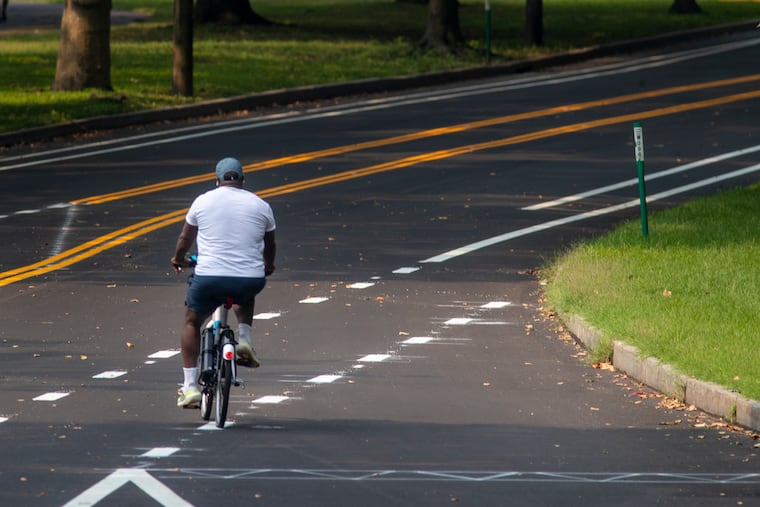Cut the cynicism about MLK Drive reopening to cars | Opinion
The last 17 months have shown us all how the people of our city use their streets when given the opportunity, and we will have that opportunity again.

In March 2020, the City of Philadelphia opened Martin Luther King Drive to people, becoming one of the first cities to shut down a street to motor vehicles in response to the pandemic. Over the next several months, “COVID streets” would become a trend all over the country, and the world, leading to the creative reuse of rights of way and parking spaces for outdoor seating, pedestrian travel, slow streets, and play.
Martin Luther King Drive, with its proximity to Center City and existing gates to completely cut off vehicle traffic, became the most used outdoor space in the entire City of Philadelphia, and the most-used trail in the entire Commonwealth of Pennsylvania.
» READ MORE: Martin Luther King Drive reopening to cars the first week of August, Philly officials say
But as quickly as Philadelphia became a leader in open streets during a pandemic, it is now following a disappointing trend around the United States to give streets back to private motor vehicles during a climate crisis.
What Philadelphia experienced with MLK Drive over the last 17 months can’t be ignored. We will have opportunities in the future to reimagine our streets again.
An open MLK Drive led to more than just an increase in bicycling. This safe, shaded, calm passageway helped lead to a 50% increase in the usage of Fairmount Park in 2020. According to an independent count by engineering firm WSP, more than 5,000 people used MLK Drive to bike, walk, roll, push strollers, and ride their horses on weekdays, and nearly 10,000 people used it on weekends — a 1,300% increase from pre-pandemic usage.
In response, the Bicycle Coalition of Greater Philadelphia called on the City of Philadelphia to reimagine MLK Drive and began holding meetings with local stakeholders to understand what the future of the road should be. We also worked with partner organizations to rally the city to open more streets in more neighborhoods.
After about two dozen community meetings, which led to a better understanding of concerns about the traffic and lack of access to the park for some groups, we recommended turning MLK Drive into a shared road, with a two-way roadway on one side and a bike path on the other.
The option of a shared roadway between motorists and pedestrians/bicyclists accommodates both the local communities who utilize MLK Drive by car and the new trail users created when the city made the decision to ban cars in March 2020.
But the city ignored this suggestion, announcing in May that MLK Drive would reopen to private motor vehicle traffic the first week of August, despite the mayor’s climate and Vision Zero goals.
» READ MORE: Keep MLK Drive closed to cars forever | Opinion
Philly is not alone. From San Francisco to Seattle to New York City, widely used open streets face great pressure to be reopened to motor vehicles from a car-centric populace, and cities are responding in kind.
Space created for motor vehicles will not be converted to space for non-motorists easily. Even in the midst of climate change and greater public awareness of and less tolerance for traffic violence, repurposing streets for those not using motor vehicles is a heavy lift and not a priority for most city leaders.
Philadelphians who used MLK Drive should not be cynical about this, though. The last 17 months have shown us all how the people of our city use their streets when given the opportunity, and we will have that opportunity again.
As Eakins Oval and the Parkway undergo a redesign, something which Mayor Jim Kenney has started and the next mayor will have to finish, we must continue to speak up for a redesign of MLK Drive and streets all over Philadelphia to better balance the needs of those who drive, bike, roll, and walk.
Randy LoBasso is the policy director of the Bicycle Coalition of Greater Philadelphia.